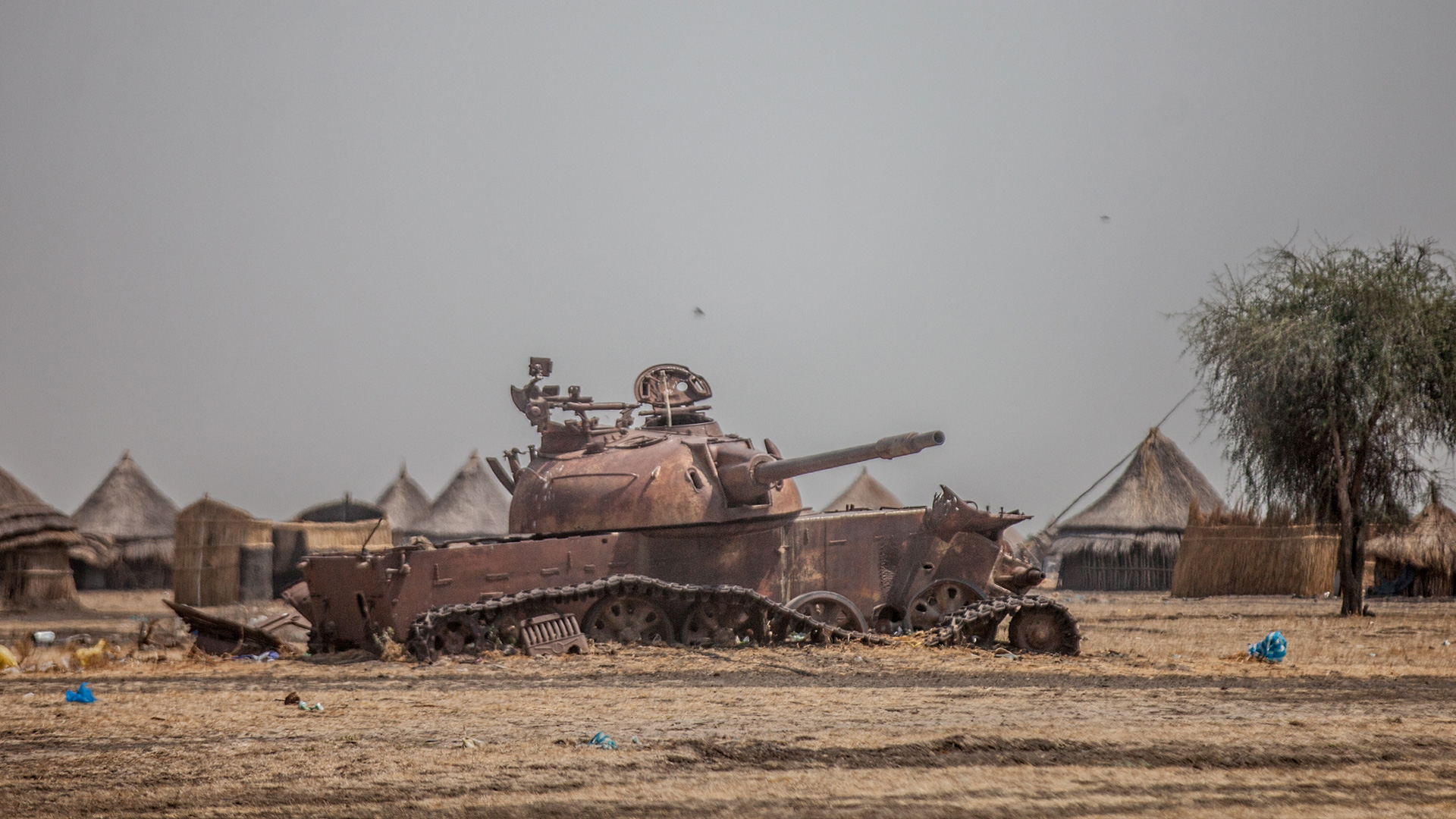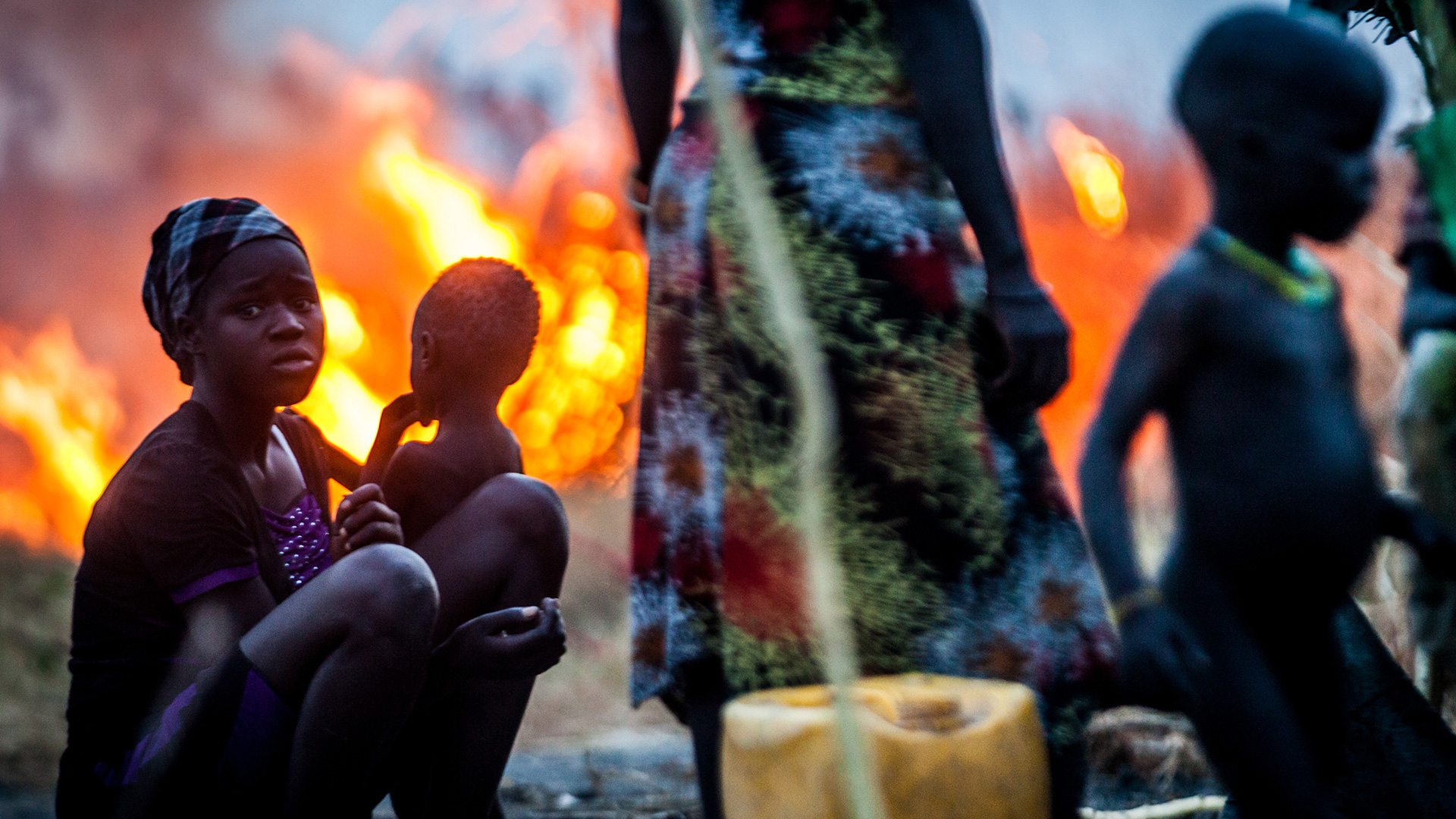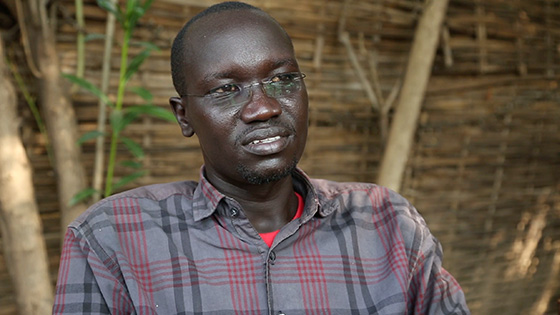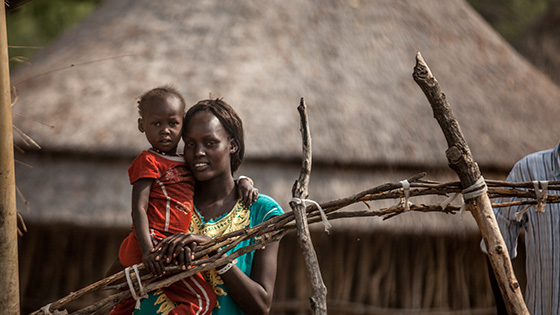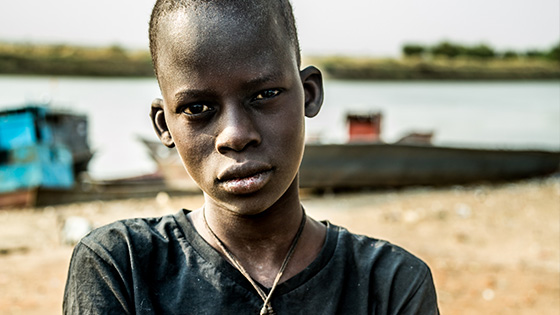What’s happening?
South Sudan’s civil war has left 50,000 people dead and driven 1.5 million from their homes. There are, however, some glimmers of hope for the future; elements among South Sudanese civil society who believe important foundations for long term peace can be laid through education, building from the grassroots up. Increasingly, they are looking to Rwanda for inspiration – and finding it in the success of the Aegis Trust’s peacebuilding work there.
Within weeks of its start, the conflict had killed thousands and prompted more than 800,000 to flee their homes. Oil production fell drastically, and disruption to farming put the country at risk of descent into famine.
Corruption, economic and political challenges such as relations with Sudan need to be tackled. The readiness of sections of the population to turn on one another based on their ethnic identity also needs to be overcome.

